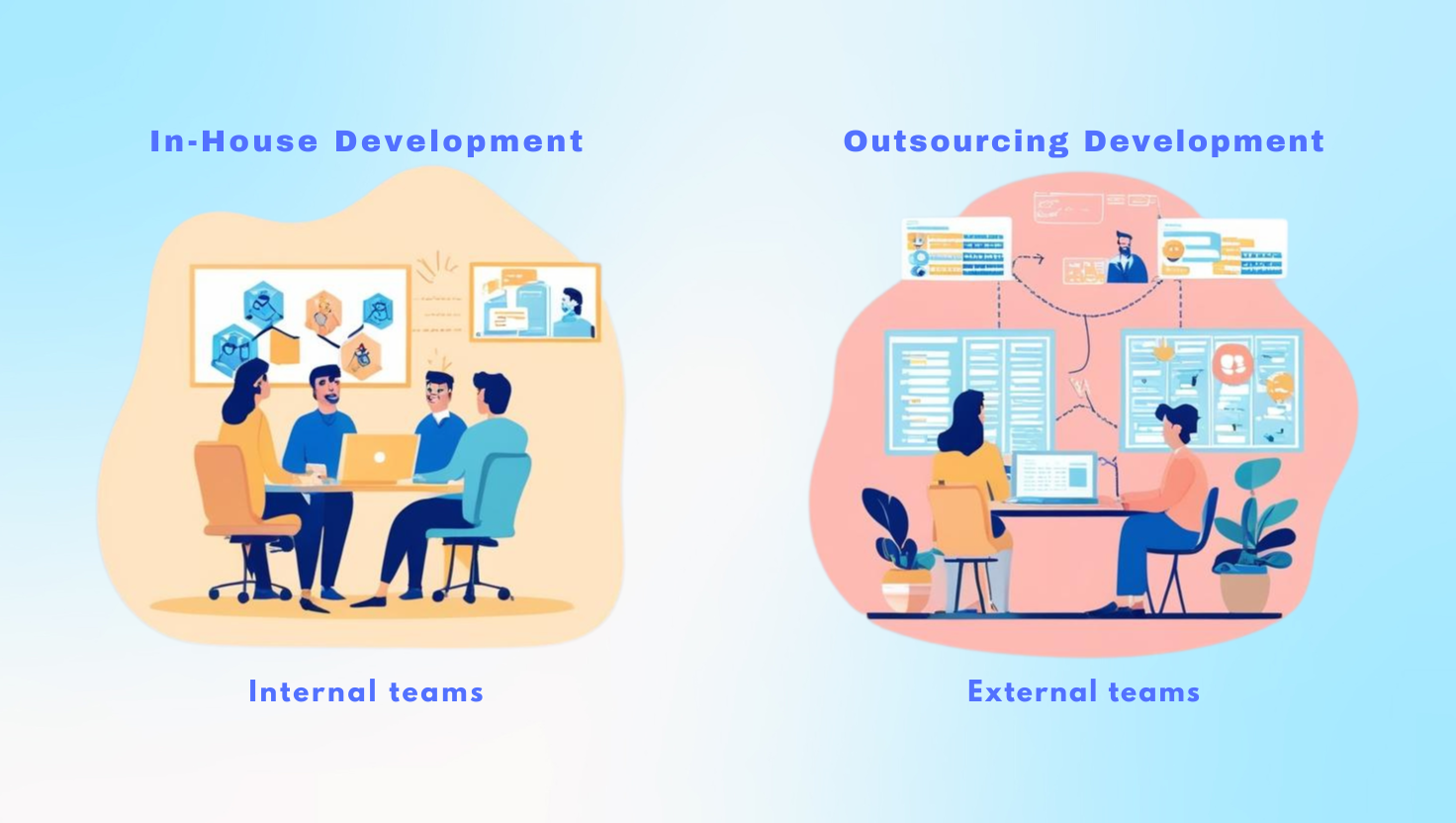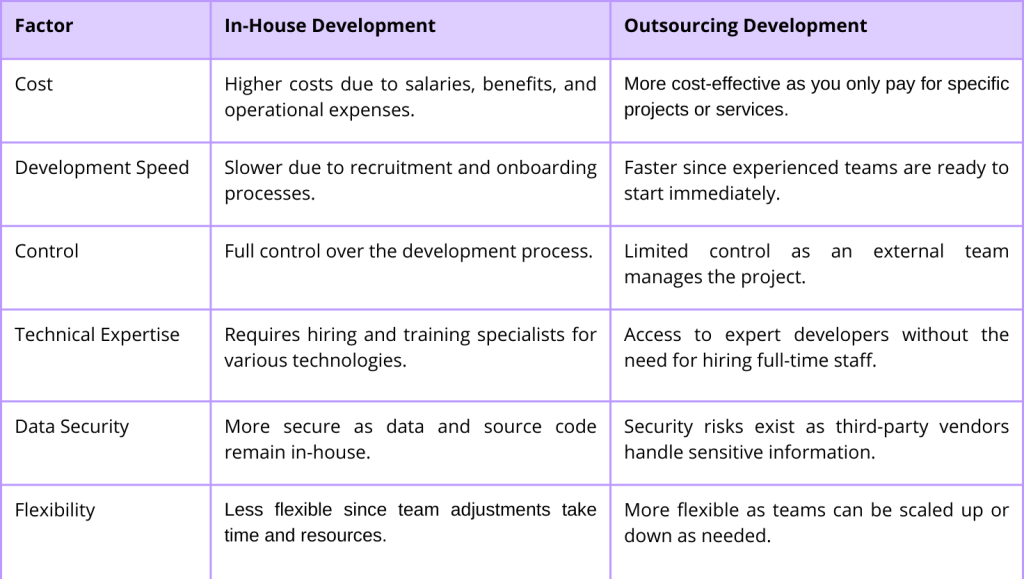
04 Feb In-House vs. Outsourcing Software Development: Which is Better?
Software development has become a crucial aspect of modern businesses. However, companies often face a common dilemma: Should they build an in-house development team or outsource the development to a third party?
This decision depends on several factors, including budget, control, flexibility, and technical expertise. Choosing the right approach can determine the success of your software project. In this article, we’ll dive into the key differences, advantages, and drawbacks of each method to help you make an informed decision.
What is In-House Development?

In-house development refers to building and managing an internal team for software development. This team consists of developers, project managers, UI/UX designers, QA testers, and IT personnel working directly for the company. Examples:
- Tech giants like Google, Microsoft, and Apple have in-house teams to maintain full control over their software products.
- Startups developing unique software solutions often rely on in-house teams for continuous innovation.
Pros of In-House Development
- Full Control – Direct oversight of project management and development decisions.
- Better Integration – The team is more aligned with the company’s culture and goals.
- Stronger Data Security – Sensitive information stays within the organization.
- Long-Term Development – Ideal for continuous software innovation.
Cons of In-House Development
- Higher Costs – Salaries, benefits, and infrastructure expenses add up.
- Talent Acquisition Challenges – Finding and retaining skilled developers can be difficult.
- Less Flexibility – Scaling the team takes time and resources.
What is Outsourcing Development?

Outsourcing involves hiring external vendors or third-party agencies to develop software. Companies can partner with freelancers, software development agencies, or technology firms to handle their software needs. Example:
- Small startups often outsource software development to build their applications quickly and affordably.
- Companies like Slack and WhatsApp initially outsourced development before transitioning to in-house teams.
Pros of Outsourcing Development
- Cost-Effective – No need to maintain full-time developers.
- Access to Experts – Work with skilled developers in various technologies.
- Faster Development – Ready-to-go teams speed up project completion.
- High Flexibility – Easily adjust team size based on project needs.
Cons of Outsourcing Development
- Less Control – External vendors manage most of the development process.
- Security Risks – Confidential data is shared with third parties.
- Communication Challenges – Differences in time zones and work cultures may impact efficiency.
Comparison: In-House vs. Outsourcing Software Development

Key Factors to Consider
Before choosing between in-house and outsourcing, consider the following factors:
- Budget – If your company has a high budget and needs full control, in-house development is better. If you want to cut costs, outsourcing is the smarter choice.
- Data Security – If your project requires strict data security, in-house development is preferable.
- Project Duration – In-house development is better for long-term projects, while outsourcing is ideal for short-term needs.
- Development Speed – If you need quick results, outsourcing provides a faster solution.
- Project Complexity – Complex projects requiring ongoing adjustments are better suited for in-house teams.
When Should You Choose In-House or Outsourcing?
Choose In-House Development if:
- You require full control over the project and data.
- The company has a sufficient budget to build and maintain an internal team.
- The software product needs long-term innovation and continuous updates.
Choose Outsourcing Development if:
- You need a fast and cost-effective solution.
- Your company lacks an internal IT team and needs specialized expertise.
- The project is short-term or a one-time development task.
Conclusion
The choice between In-House and Outsourcing Software Development depends on your business needs and goals.
- If your business requires full control, long-term development, and high security, In-House Development is the best option.
- If you need a more flexible, faster, and budget-friendly solution, Outsourcing Development is the better choice.


Sorry, the comment form is closed at this time.